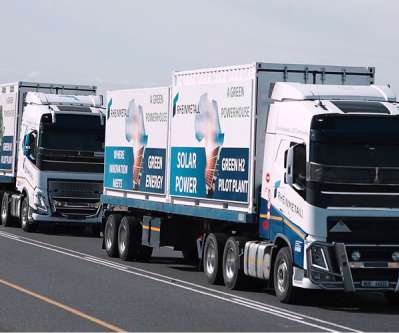AFC and University of Witwatersrand Sign Exclusive Agreement to Commercialize Fischer-Tropsch Fuels and Chemical Feedstocks in the Americas
Green Car Congress
JUNE 26, 2009
and the University of Witwatersrand, Johannesburg, South Africa (Wits) signed an exclusive representation agreement to commercialize the Fischer-Tropsch-based fuel and chemical production process developed by the Centre of Materials and Process Synthesis (COMPS) located at The University of Witwatersrand, Johannesburg, South Africa.












Let's personalize your content